By Robert St. Martin
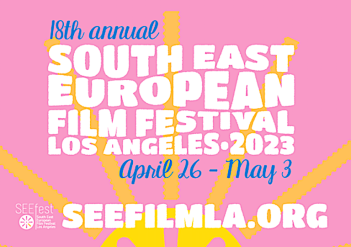 Los Angeles, CA (The Hollywood Times) 4/20/23 – Fresh from an auspicious debut in the “Encounters” section of the Berlin International Film Festival, Kurdwin Ayub’s Sonne will open the 18th annual Southeast European Film Festival (SEEfest) at the Writer’s Guild Theater in Beverly Hills on April 26. Sonne (The Sun), the winner of the Berlinale Best First Feature Award last year, is the debut feature film of Kurdwin Ayub, a Kurdish filmmaker born and raised in Austria. The film bursts with the youthful energy of three teenage girls from Vienna who twerk in hijab and sing a pop song, filming and posting on social media. Staged briskly and as a wild visual mix of styles, the film is a cinematic search for identity for the Tiktok generation. For tickets to the opening night gala at the Writer’s Guild Theatre and the film Sonne, go to: https://seefest2023.eventive.org
Los Angeles, CA (The Hollywood Times) 4/20/23 – Fresh from an auspicious debut in the “Encounters” section of the Berlin International Film Festival, Kurdwin Ayub’s Sonne will open the 18th annual Southeast European Film Festival (SEEfest) at the Writer’s Guild Theater in Beverly Hills on April 26. Sonne (The Sun), the winner of the Berlinale Best First Feature Award last year, is the debut feature film of Kurdwin Ayub, a Kurdish filmmaker born and raised in Austria. The film bursts with the youthful energy of three teenage girls from Vienna who twerk in hijab and sing a pop song, filming and posting on social media. Staged briskly and as a wild visual mix of styles, the film is a cinematic search for identity for the Tiktok generation. For tickets to the opening night gala at the Writer’s Guild Theatre and the film Sonne, go to: https://seefest2023.eventive.org
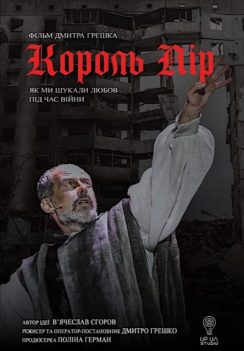 Headed up by Vera Mijojlíc, this SEEfest gives film lovers in Los Angeles a wonderful window into a part of the world that often is overlooked but offers us so much to learn about the human condition. This year at the opening night gala, SEEfest will be giving the 2023 Legacy Award to Otto Constantin Nemenz, legendary founder of the camera rental company and the Hollywood expert on cameras and lenses. SEEfest festival passes, and the line-up of all the feature films, documentaries, and shorts are at: https://seefest2023.eventive.org/films
Headed up by Vera Mijojlíc, this SEEfest gives film lovers in Los Angeles a wonderful window into a part of the world that often is overlooked but offers us so much to learn about the human condition. This year at the opening night gala, SEEfest will be giving the 2023 Legacy Award to Otto Constantin Nemenz, legendary founder of the camera rental company and the Hollywood expert on cameras and lenses. SEEfest festival passes, and the line-up of all the feature films, documentaries, and shorts are at: https://seefest2023.eventive.org/films
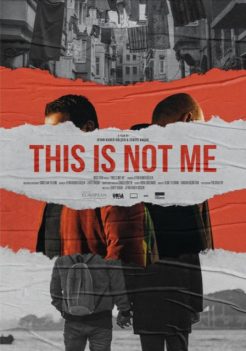 From Turkey this year comes an interesting film by Jeyn Kader Gulsen – This is Not Me, an exploration of homosexual relationships within the established bounds of heterosexual marriages in Turkish society. The three main characters of the film, Mustafa, Mehmet, and Yusuf have migrated to Istanbul from small towns and come from conservative families. Mehmet and Yusuf, both married to women, act the part of heterosexual males and family men within their own social circles. Privately, however, they are passionately in love with their male lovers and can only live their truth within the parallel lives they have built with them. The documentary is based on recorded conversations between men in the Turkish gay community and wonderful observations of domestic life, as they wake up in the morning, prepare breakfast and remember to feed the cat.
From Turkey this year comes an interesting film by Jeyn Kader Gulsen – This is Not Me, an exploration of homosexual relationships within the established bounds of heterosexual marriages in Turkish society. The three main characters of the film, Mustafa, Mehmet, and Yusuf have migrated to Istanbul from small towns and come from conservative families. Mehmet and Yusuf, both married to women, act the part of heterosexual males and family men within their own social circles. Privately, however, they are passionately in love with their male lovers and can only live their truth within the parallel lives they have built with them. The documentary is based on recorded conversations between men in the Turkish gay community and wonderful observations of domestic life, as they wake up in the morning, prepare breakfast and remember to feed the cat.
 The driving character of the film, Mustafa, is Mehmet’s lover of 15 years. Mustafa describes Mehmet as a “homophobic homosexual.” During the first couple of years of their relationship, Mehmet violently abused Mustafa because of guilt. In the film we see Mustafa trying to put this very passionate but equally traumatic relationship in the past. Mehmet, however, has no desire to let go of Mustafa. Jeyan Kader Gulsen is a documentary film director and producer living between in Istanbul, Turkey and Stuttgart, Germany. She worked as documentary director and executive producer for six years at the Al Jazeera Television Channel where she prepared documentaries on people marginalized by regimes and authorities for the investigation-heavy “People and Power” documentary program bloc. I do recommend this film which will screen as part of SEEfest: Mon, May 1st, 3:15 PM @ Laemmle Noho
The driving character of the film, Mustafa, is Mehmet’s lover of 15 years. Mustafa describes Mehmet as a “homophobic homosexual.” During the first couple of years of their relationship, Mehmet violently abused Mustafa because of guilt. In the film we see Mustafa trying to put this very passionate but equally traumatic relationship in the past. Mehmet, however, has no desire to let go of Mustafa. Jeyan Kader Gulsen is a documentary film director and producer living between in Istanbul, Turkey and Stuttgart, Germany. She worked as documentary director and executive producer for six years at the Al Jazeera Television Channel where she prepared documentaries on people marginalized by regimes and authorities for the investigation-heavy “People and Power” documentary program bloc. I do recommend this film which will screen as part of SEEfest: Mon, May 1st, 3:15 PM @ Laemmle Noho
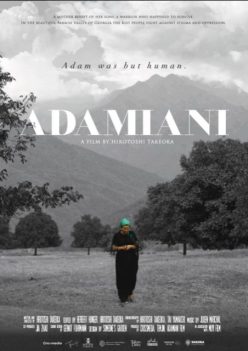 Adamiani is an award-winning film from Japanese documentary filmmaker Hirotoshi Takeoka, who has made TV documentaries about people trying to cope with the Chechen conflict in Pankisi Valley of Georgia. The Kists are Georgian Chechens who live in the Pankisi Gorge. The local men are known for their bravery but also infamous as “terrorists.” This documentary is a multi-threaded story about the inhabitants of this little-known place in the Caucasus Mountains. “Adamiani”, means “a human” in Georgian. For his work on “Chechen’s heart of Life” was awarded Japan’s Best New Director Award (2014). “Mothers of change” – a winner of the ATP Best Documentary Award (2019). “Adamiani” is his feature film debut. For tickets: Tue, May 2nd, 7:00 PM @ 2220 Arts+ Archive
Adamiani is an award-winning film from Japanese documentary filmmaker Hirotoshi Takeoka, who has made TV documentaries about people trying to cope with the Chechen conflict in Pankisi Valley of Georgia. The Kists are Georgian Chechens who live in the Pankisi Gorge. The local men are known for their bravery but also infamous as “terrorists.” This documentary is a multi-threaded story about the inhabitants of this little-known place in the Caucasus Mountains. “Adamiani”, means “a human” in Georgian. For his work on “Chechen’s heart of Life” was awarded Japan’s Best New Director Award (2014). “Mothers of change” – a winner of the ATP Best Documentary Award (2019). “Adamiani” is his feature film debut. For tickets: Tue, May 2nd, 7:00 PM @ 2220 Arts+ Archive
 Silence 6-9 is a new film from Greece directed by Christos Passalis, who you may recall was an actor in Yorgos Lanthimos’s Dogtooth (Prix Un Certain Regard, 2009 Cannes IFF, Best Foreign Language Film nomination at the 83rd Academy Awards). In this absorbing, surreal film, a man and a woman, Aris and Anna, meet in a dream-like coastal town. The town is full of antennas, which emit the voices of the Vanished Ones, inhabitants of the town that have suddenly and inexplicably disappeared. As we watch the daily life and the bizarre rituals of the inhabitants, rituals devoted to the lost ones, Anna and Aris fall in love. A few days later, Anna suddenly disappears. This film will screen at SEEfest: Sun, Apr 30th, 5:00 PM @ UCLA Bridges Theater
Silence 6-9 is a new film from Greece directed by Christos Passalis, who you may recall was an actor in Yorgos Lanthimos’s Dogtooth (Prix Un Certain Regard, 2009 Cannes IFF, Best Foreign Language Film nomination at the 83rd Academy Awards). In this absorbing, surreal film, a man and a woman, Aris and Anna, meet in a dream-like coastal town. The town is full of antennas, which emit the voices of the Vanished Ones, inhabitants of the town that have suddenly and inexplicably disappeared. As we watch the daily life and the bizarre rituals of the inhabitants, rituals devoted to the lost ones, Anna and Aris fall in love. A few days later, Anna suddenly disappears. This film will screen at SEEfest: Sun, Apr 30th, 5:00 PM @ UCLA Bridges Theater
The Chalice of Sons and Daughter is a fascinating Romanian documentary film from Dana Bunescu and Cătălina Tesăr, the later who teaches Anthropology at the University of Bucharest and is an expert on the sexual, economic, and political dimensions of early age arranged marriages among the Cortorari Roma from Transylvania. There is little if any freedom of choice in individual lives in this Roman community. Everyone here is compelled by culture to follow a predictable trajectory, namely, to marry and conceive offspring. Marriages are arranged by parents for their children at early ages. Yet marital ties are fragile and made to endure only by the birth of a boy to the new couple. Boys alone inherit the family’s badge, the “tahtais”(chalices) – silver cups that come from their ancestors. Daughters are not desired because they bring the prospects for their parents to pay big cash dowries to marry them off. Consequently, couples often resort to sex-selective abortions. When a marriage is arranged, the boy’s chalice is given in trust to the bride’s family until the new couple has a son who will inherit it and will secure the couple’s marriage. The documentary follows Peli and Nina, a young couple in their mid-20s, parents to a 5-year daughter who are striving to conceive a son, in order to comply with the local custom. As we are impatiently waiting for the resolution of the conflicts in their story, we are invited to reflect on the strength and resilience of women in a male-dominated society. This film screens as part of SEEfest: Thu, Apr 27th, 3:00 PM @ Laemmle Royal
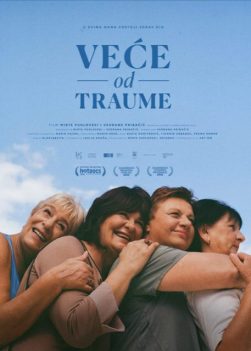 Bigger Than Trauma (Vece od trauma) is an awarding-winning film from Croatia – directed by Vedrana Pribačić and Mirta PuhlovskiIf. The two female directors are interested in the struggles and suffering of women in Croatia, long after the actual war in the late 1990s ended. The past still weighs heavily on many women in Croatia. The film follows three women raped during the War of Croatian Independence. War of Independence. The surviving women have not healed. The justice system is slow, the legal process of fact-finding is agonizing and government support largely translates into tranquilizers and silence. Many families still live near the very men who raped and tortured them, and surrounded by trauma, they exist in the past, unable to move forward. Katica, Ana and Marija attend a pioneering program that invites both Serbian and Croatian women to try deep, reformative personal therapy together. Intimate cameras witness them examining photos of themselves before the war and skeptically trying physical touch exercises. The film will screen on Mon, May 1st, 5:15 PM @ Laemmle Noho
Bigger Than Trauma (Vece od trauma) is an awarding-winning film from Croatia – directed by Vedrana Pribačić and Mirta PuhlovskiIf. The two female directors are interested in the struggles and suffering of women in Croatia, long after the actual war in the late 1990s ended. The past still weighs heavily on many women in Croatia. The film follows three women raped during the War of Croatian Independence. War of Independence. The surviving women have not healed. The justice system is slow, the legal process of fact-finding is agonizing and government support largely translates into tranquilizers and silence. Many families still live near the very men who raped and tortured them, and surrounded by trauma, they exist in the past, unable to move forward. Katica, Ana and Marija attend a pioneering program that invites both Serbian and Croatian women to try deep, reformative personal therapy together. Intimate cameras witness them examining photos of themselves before the war and skeptically trying physical touch exercises. The film will screen on Mon, May 1st, 5:15 PM @ Laemmle Noho
King Lear: How We Looked for Love During the War is an ambitious film directed by veteran Ukrainian director Dmytro Hrenhko, who is best known as his Snow Leopard of the Carpathians (2019. This documentary focuses on the undertaking by local Ukrainian activist Vyacheslav Yehorov who decided to realize his long-held dream of staging Shakespeare’s King Lear with an entire cast made up of refugees, former teachers, artists, engineers, sales assistants, and housewives in today’s war-torn Ukraine. Learning their lines and immersing themselves in the magic of theater gives them a new lease on life and hope for the future. The Russian invasion of Ukraine forced millions of Ukrainians to flee their homes. The film tells the story of internally displaced people in the small western Ukrainian town of Uzhhorod in Transcarpathia, where they work in canteens, weave camouflage nets, and join an unusual theater troupe. This interesting film will screen: Wed, May 3rd, 7:00 PM @ UCLA Bridges Theater
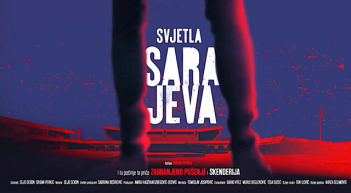 Lights of Sarajevo, a first documentary film by Sarajevo native Srđan Perkić takes us to cold winter nights, through unique, picturesque Sarajevo settlements and neighborhoods, recalling the legends related to the Skenderija concert hall dating back to the socialist period. Before the Bosnian war of the 1990s. The camera follows the band members backstage as they prepare for their biggest solo concert in the very place where they got their start. The film is a time capsule, tracing the long and fascinating history of the cult band “Zabranjeno pušenje“ whose trajectory parallels the tumultuous years of a dying country, the subsequent war, and fragile post-war times. The film is part of the offerings of SEEfest and screens: Sat, Apr 29th, 5:30 PM @ UCLA Bridges Theater
Lights of Sarajevo, a first documentary film by Sarajevo native Srđan Perkić takes us to cold winter nights, through unique, picturesque Sarajevo settlements and neighborhoods, recalling the legends related to the Skenderija concert hall dating back to the socialist period. Before the Bosnian war of the 1990s. The camera follows the band members backstage as they prepare for their biggest solo concert in the very place where they got their start. The film is a time capsule, tracing the long and fascinating history of the cult band “Zabranjeno pušenje“ whose trajectory parallels the tumultuous years of a dying country, the subsequent war, and fragile post-war times. The film is part of the offerings of SEEfest and screens: Sat, Apr 29th, 5:30 PM @ UCLA Bridges Theater
These are only some of the films being screened at SEEfest 2023 between April 26 and May 3, at various venues around the city of Los Angeles.